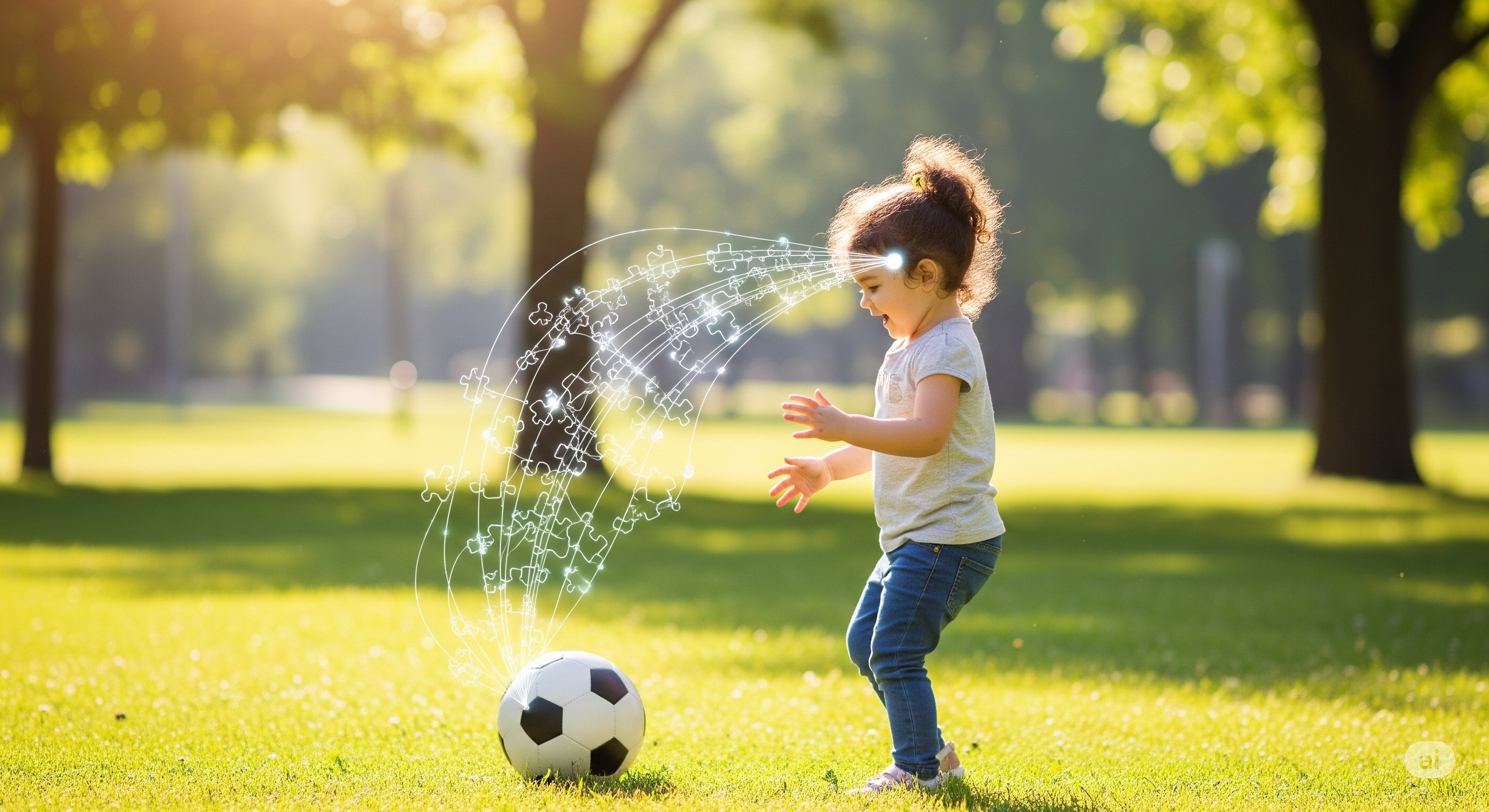Are Kids Missing Out on Skill-Building Fun?

Is It Just Play? How to Ensure Your Child’s Fun is Fueling Their Development
Watch any child play, and you'll see a whirlwind of activity. But is all play created equal? In our desire to keep our kids entertained, we sometimes overlook a golden opportunity: the power of purposeful play.
Passive play, where a child is merely a spectator or going through repetitive motions, is very different from active, skill-building play. The question for parents isn't "Is my child playing enough?" but rather, "Is their play doing enough for their development?"
What is Purposeful Play?
Purposeful play is any activity where a child is having fun while simultaneously developing crucial cognitive, physical, or social-emotional skills. They don't know they're 'learning'—they're just deeply engaged.
Think of it as the difference between passively watching a cartoon and actively trying to build the tallest tower of blocks. One is consumption; the other is creation, problem-solving, and skill building.
Key Skills Your Child Can Develop Through Play
When we choose the right tools and activities, we can transform simple fun into a powerhouse for child development.
-
Gross Motor Skills: This is the foundation of physical literacy. Activities like running, jumping, catching, and kicking a ball develop coordination, balance, and strength. A simple game of catch isn't just a game; it's a full-body workout for a developing nervous system.
-
Fine Motor Skills: The ability to make small, precise movements is crucial for writing and other daily tasks. Stacking blocks, moulding clay, and even gripping a textured ball can help refine these intricate skills.
-
Problem-Solving & Cognitive Skills: How do I make this tower not fall? Where do I need to kick the ball for it to go in the goal? Play presents endless, low-stakes problems for a child to solve, building neural pathways and fostering strategic thinking.
-
Social & Emotional Learning: Playing with others teaches turn-taking, sharing, communication, and empathy. It also teaches resilience when a game doesn't go their way.
How to Introduce More "Play with a Purpose"
You don't need expensive, 'educational' toys. The best tools are often the simplest.
-
Choose Open-Ended Toys & Equipment: Select items that can be used in multiple ways. A football isn't just for a formal game; it can be used for targeting, dribbling challenges, or simple kicking. This fosters creativity.
-
Ask "What if..." Questions: Engage with their play. "What if we try to build the bridge wider?" "What if you try kicking with your other foot?" This encourages them to think critically.
-
Create Simple Challenges: Set up an obstacle course in the living room. See how many times they can pass a ball back and forth without dropping it. The challenge is what drives engagement and learning.
The goal of early learning shouldn't be to turn play into a chore. It should be to make developmental activities feel as joyful and natural as play itself. This is the philosophy at the heart of Jogo. We believe the best learning happens when a child is so engrossed in having fun, they don't even realise they're building skills for life.
Let's make playtime matter. #PlayWithPurpose #ChildDevelopment #ParentingInsights #JogoIsComing



















